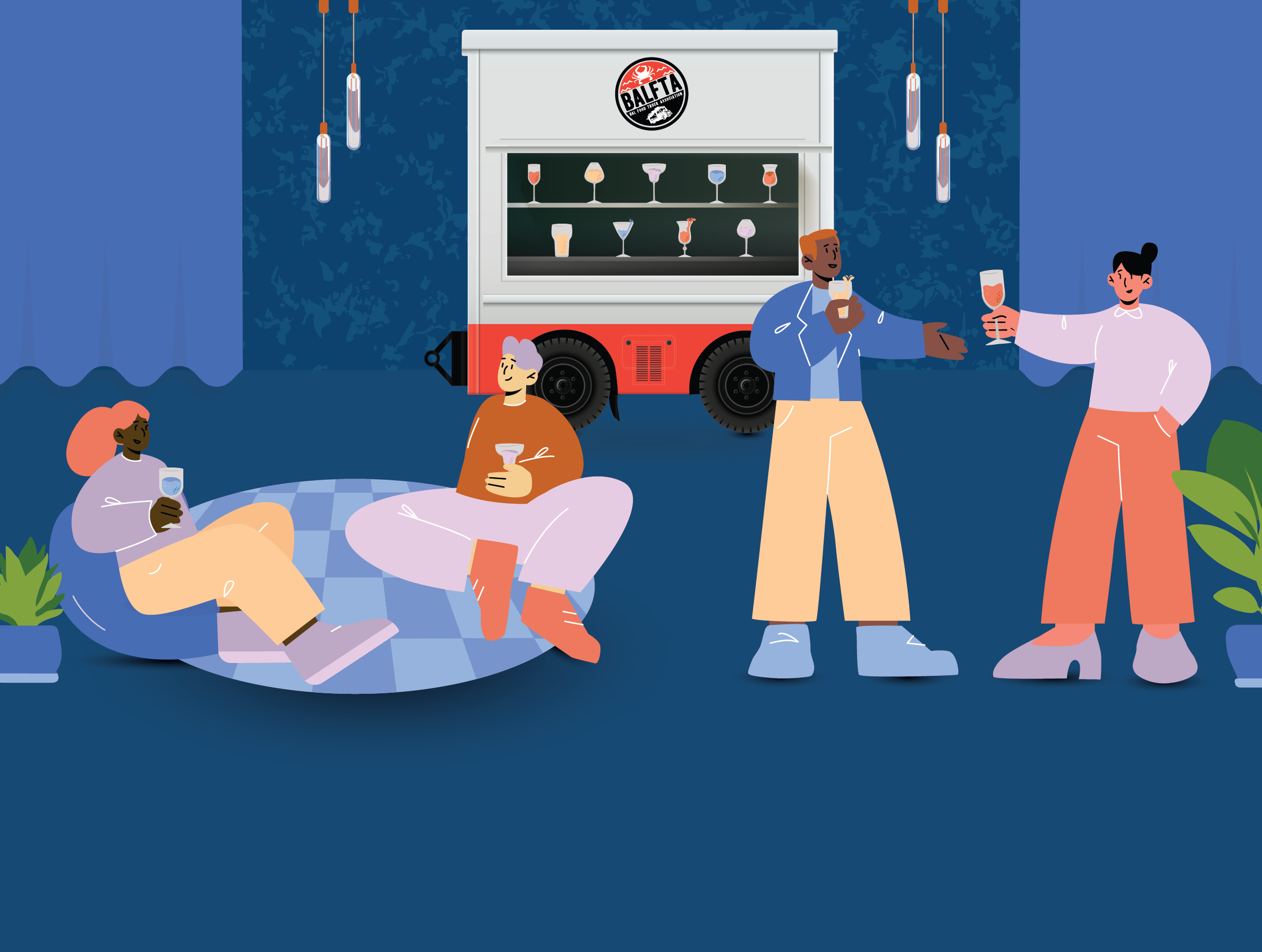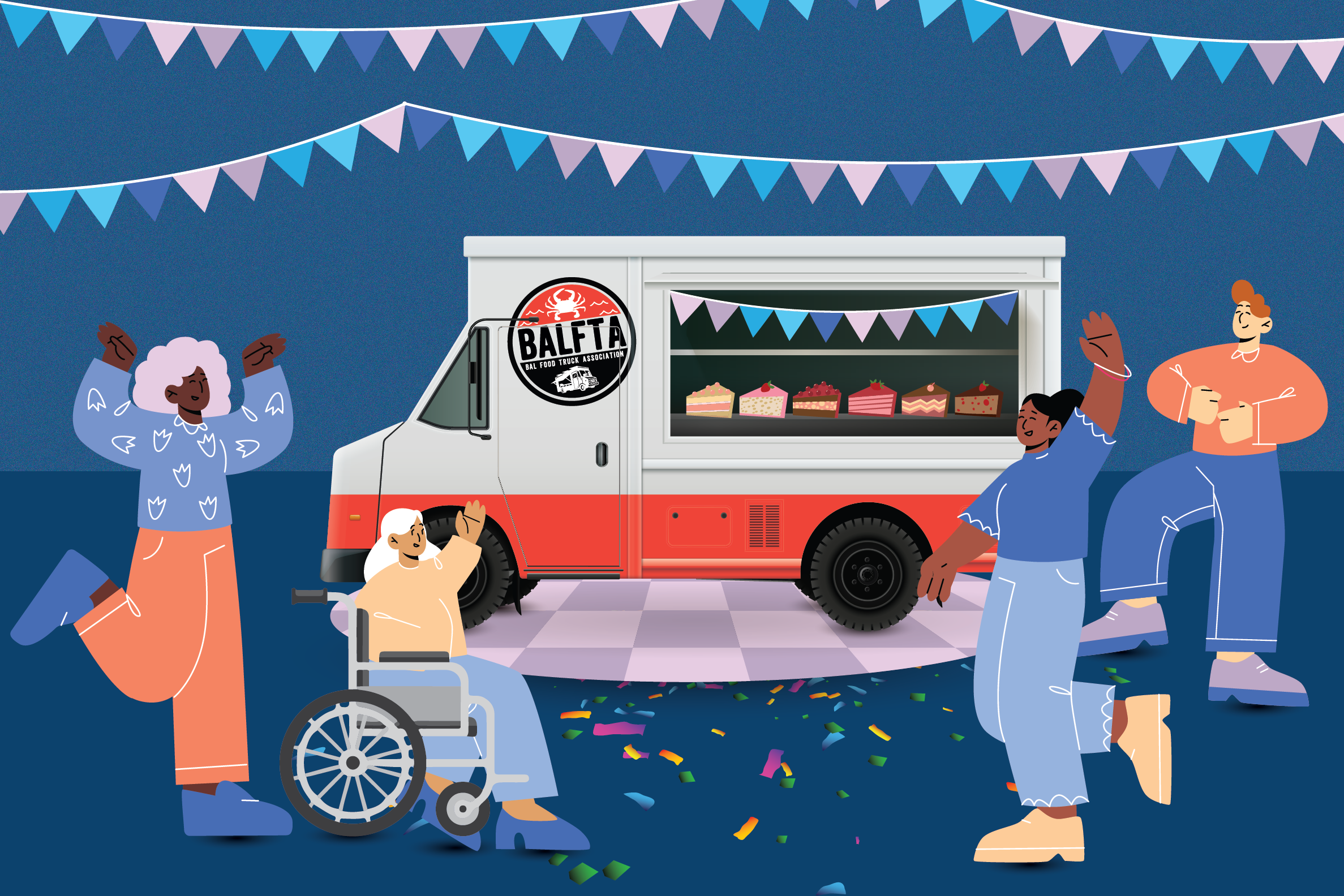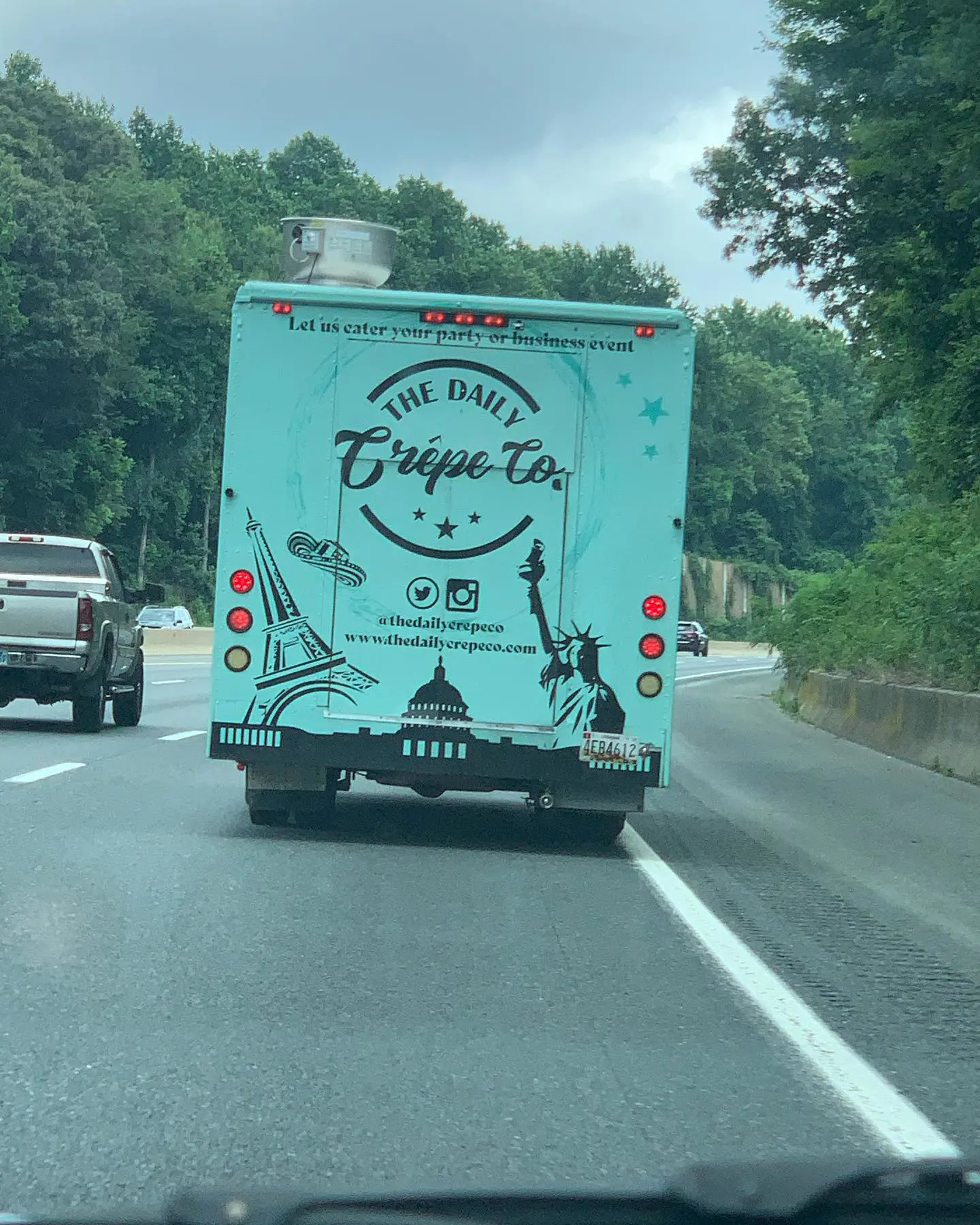Catering Costs (2026)
catering costs for food trucks in baltimore
Ever dream of slinging gourmet tacos in the Inner Harbor, serving up life-changing crab cakes at a festival, or seeing a line of people wrapped around the block for your signature creation? The Baltimore food truck scene is vibrant, exciting, and full of opportunity.
But let's be real: for every glorious day of serving happy customers, there's a mountain of paperwork, permits, and inspections you have to conquer first.
Turning that dream into a real, rolling business is a marathon, not a sprint. We've broken down the two biggest questions every aspiring food truck owner in Charm City has: What does it legally take to get on the road, and what kind of money can you really make?
Part 1: The "How-To" – Your Guide to Getting Legal in Baltimore
Before you can even think about your menu, you need to become an expert in bureaucracy. Operating in Baltimore means satisfying requirements at the state, city, and even neighborhood levels. Here’s your checklist.
Step 1: Get Your Business Legit (The State Level)
- This is the foundation for everything else. You can't get city permits without first being a legal state business.
Business Registration: Head to the Maryland Business Express website. This is where you'll officially register your business name and legal entity (like an LLC or Sole Proprietorship).
Get Your EIN: You'll need an Employer Identification Number (EIN) from the IRS. It's the Social Security number for your business and is essential for taxes and hiring.
Seller's Permit: The Comptroller of Maryland will issue you a Seller's Permit. This is what allows you to legally collect and remit Maryland's 6% sales tax on the food you sell.
Step 2: Conquer the "Big Three" City Permits
These are the non-negotiable licenses you need to operate within Baltimore City limits.
Mobile Food Vendor License: This is your primary "permission to exist" from the city. It's managed by the Department of Transportation (DOT). You'll apply, pay a fee (which varies by where you want to operate—downtown is more expensive), and get your official license.
Health Department Food License: This is the big one. The Baltimore City Health Department will conduct a detailed plan review and a pre-operational inspection of your truck. They'll check everything: your sinks (you need separate ones for hand-washing and dishwashing), your refrigeration temps, your food handling procedures, and your equipment (it must be commercial-grade). Once you pass, you get the coveted orange sticker to display.
Fire Permit: The Baltimore City Fire Department needs to ensure your truck isn't a fire hazard. They will inspect your propane tanks (must be securely mounted), your gas and electrical lines, and, most importantly, your fire suppression system. If you have any grease-producing equipment (like a fryer or griddle), a professionally installed and inspected UL-300 suppression system is mandatory.
Step 3: Your Truck and Your "Home Base"
You can't just park your food truck in your driveway at night. The city has strict rules about your physical assets.
The Commissary Agreement: This is a deal-breaker. Baltimore requires every food truck to have a signed agreement with a licensed commercial kitchen, known as a commissary. This is your "base of operations." You'll use the commissary to:
- Prep and store food legally.
- Fill your truck's fresh water tanks.
- Legally dispose of your gray water and grease.
- Clean your truck and utensils.
The Vehicle Itself: Your truck has to be a "commercial kitchen on wheels." That means smooth, washable, non-absorbent surfaces, proper ventilation, and NSF-certified (commercial grade) equipment.
Commercial Driver's License (CDL): Don't forget this! If your fully-loaded food truck has a Gross Vehicle Weight Rating (GVWR) of 26,001 pounds or more, the driver is legally required to have a Class B CDL. Many larger trucks easily hit this limit.
Step 4: Location, Location, Location (And Its Many Rules)
This is where many new owners get frustrated. You can't just park and sell anywhere.
The 300-Foot Rule: This is Baltimore's most famous and controversial food truck law. You are prohibited from operating within 300 feet of a brick-and-mortar restaurant that sells a similar product.
That means no parking your taco truck near a Chipotle or your pizza truck near a slice shop. This rule has been challenged in court but remains in effect.
Prohibited Zones: You are also barred from operating within two blocks of any K-12 school or designated city markets (like Cross Street or Broadway Market).
Special Events: Want to vend at a festival or a fair? You'll need a special event vendor permit for that specific event, which is often coordinated through the event organizer.
Part 2: The "How-Much" – The Payoff in Food Truck Catering
After all that work, where's the reward? While street service is great for marketing, many Baltimore food trucks make most of their profits from private events and catering. Here’s how those costs break down.
The Two Magic Numbers: Minimums vs. Per-Person
When you book a private party, wedding, or corporate lunch, you're not just selling individual meals. You're being "bought out."
The Catering Minimum: This is the most important number. It's the guaranteed minimum amount you must be paid to show up, even if only 10 people eat. This covers your gas, staff, time, and food costs. In Baltimore, these minimums vary but generally start around $800 - $1,200 and can go up to $1,500 - $2,500+ for popular, high-end, or complex trucks.
The Cost Per Person: This is the price for each guest's meal (e.g., one entrée and one side). This rate is typically between $15 to $30 per person.
How it works: If your truck has a $1,500 minimum and a $20 per-person rate:
- An event with 50 guests would still pay $1,500 (because 50 x $20 = $1,000, which is below the minimum).
- An event with 100 guests would pay $2,000 (because 100 x $20 = $2,000, which is above the minimum).
What's Included (And What's Not)
When you give a client a quote, be clear about what's included.
Typically Included: A 2-hour service window, all food for the agreed-upon guest count, and standard disposable plates/utensils.
Potential Extra Fees: Be sure to add line items for Maryland's 6% sales tax, a service fee (often 18-22% to cover staff wages), and a travel fee if the event is outside the city.
The Final Word
Starting a food truck in Baltimore is a serious undertaking that requires significant planning, investment, and patience for navigating a complex web of regulations. From the 300-foot rule to the non-negotiable commissary agreement, the hurdles are real.
But the reward is the chance to build a beloved brand, be your own boss, and tap into a lucrative catering market where a single 2-hour event can be more profitable than a full week of grinding it out on the street.




